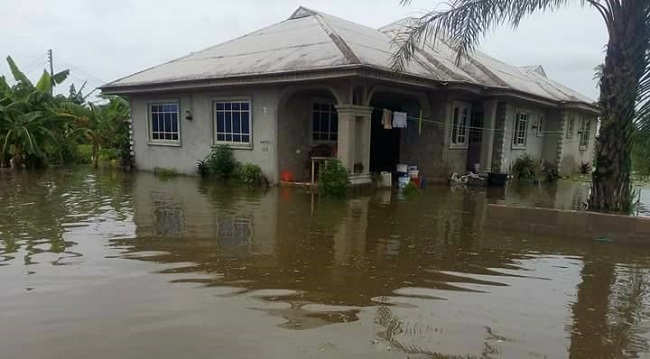The AGRHYMET Regional Centre of the Interstate Committee for Drought Control in the Sahel (CILSS) in a recent announcement concerning trends in rainfall for the season in Gulf of Guinea countries has warned of the possibilities of flooding and drought.

The special seasonal forecast bulletin for the Agro-Hydro-Climatic characteristics of the 2019 high rainy season for the Gulf of Guinea countries indicates that “early to normal start dates are very likely in the band from southcentral Côte d’Ivoire to southcentral Nigeria, including southern Ghana, Togo, Benin and southwest Nigeria”.
It adds, however, that “normal to late (rainy season) start dates could be observed over southeastern Nigeria”.
These characteristics, it was gathered, portend cases of high and low rainfall, resulting in flooding and drought, as well as the risk of diseases.
The bulletin provides information on rainfall totals in the coastal areas of southeast Ghana and south Togo, the coastal areas of Côte d’Ivoire, southwestern Ghana, southern Benin, Nigeria and Cameroon, as well as the territories of Guinea, Sierra Leone and Liberia.
There are also elements on the flows of the Gulf of Guinea river basins including Sassandra, Densu, Pra, Ankobra, Tano, Comoé, Bandama, Ouémé, Lower Volta, Mono, Couffo and Lake-Togo and the Niger River Delta in Nigeria.
In view of the risk of drought, AGRHYMET recommends countries to:
- favour species and varieties that are resistant to water deficit;
- adopt cultural techniques for soil water conservation;
- promote irrigation and ensure rational management of water resources for crops and other uses;
- maintain vigilance regarding the satisfaction of the various uses of water resources, in view of the coexistence of surplus and deficit areas and the uncertainties in the forecasts;
For the risk of flooding, AGRHYMET recommends, among other things, to:
- avoid uncontrolled occupation of floodplains (both for housing and crops);
- strengthen monitoring and early warning of flood risk;
- raise awareness among the populations of exposed areas;
- clean the gutters to facilitate the evacuation of rainwater;
- provide reception sites for the affected populations;
- ensure the maintenance of dams and road infrastructure;
- promote the cultivation of hydrophilic plants;
Faced with the risk of disease, the Regional Centre recommends, among other things, to monitor the water quality and cleaning up towns and villages through water drainage and gutter cleaning operations.
